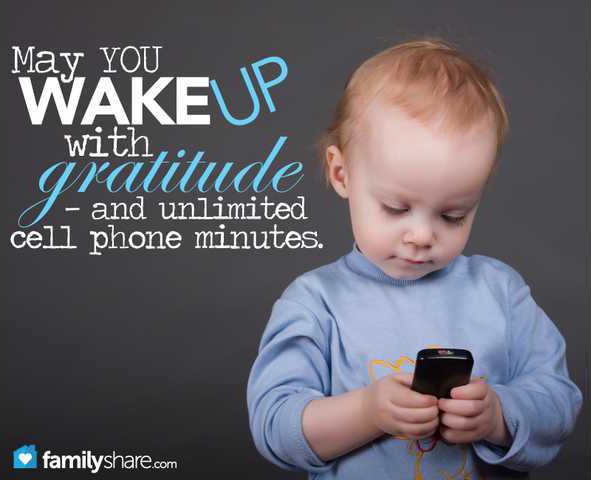![]() Over the last two decades, cell phones have gone from an expensive (and bulky!) luxury to an absolute necessity — the latter definition, of course, coming from your kids. But the way society is moving, it’s becoming more and more difficult to deny that fact. Parents want their kids to have a way to call home in case of an emergency. Kids want to be able to be in contact with their friends.
Over the last two decades, cell phones have gone from an expensive (and bulky!) luxury to an absolute necessity — the latter definition, of course, coming from your kids. But the way society is moving, it’s becoming more and more difficult to deny that fact. Parents want their kids to have a way to call home in case of an emergency. Kids want to be able to be in contact with their friends.
The Pew Research Center reported findings in 2013 that 78 percent of teens have a cell phone, almost half of which are smartphones. It won’t be long before the parents of the other 22 percent won’t feel like they have a choice anymore. So now that you’re stuck with it, here are some tips on how to keep those family phone plans from carving a huge chunk out of your budget.
Research companies and plans
Most people tend to gravitate toward the big name companies like Verizon, Sprint, AT&T and T-Mobile. And in the past few years, all of these companies have been battling heavily to keep your family together (on their plan.) But nowadays there are several new companies out there that offer just as good a solution to your problem at a fraction of the cost.
Republic Wireless is one that offers individual-only plans as low as $5/month without locking its customers into a long-term contract. It’s great for those who like to have unlimited everything. You can find a more detailed review of Republic here. Ting Wireless charges you only for what you used during the month, a more attractive option for people who are more controlled with their phone usage. StraightTalk, which partners with Wal-Mart, gives customers a pre-paid option, again with no contract. There are several other alternatives, but one thing is for certain: The telecommunication industry is expanding at just the right time to give you and your family more options to save money.
Decide how much is enough
If it were up to your kids, they would have unlimited access to everything on the most expensive phone available. But most likely, it isn’t your kids who are paying for the plan. Since you are the one who is, you decide how much is enough when it comes to minutes, texts and data. You can also decide if your kids need a smartphone at all, or if a regular phone is good enough.
Have them help out
Another way to cut down your cost of your family plan is to have all family members help cover the costs — including your teenagers. While that idea certainly won’t be a popular one, it can teach them to become financially self-reliant. It will also help them to learn to value money, since it’s so easy to take it for granted when mom and dad are covering the costs.
Consider dropping the landline
If every member of the family has easy access cell phone, the landline becomes a redundancy. In this scenario, dropping the landline can save you each month. That being said, don’t spend more to get everyone a cell phone than it would cost to cut the landline.
Conclusion
Let’s face it. Technology is taking over our society, and our kids will never know a time without high-speed cell network Internet and smartphones. If you’re a parent who is struggling with how expensive cell phone plans cost for an entire family, know that there are certain things you can do to help that. As you research what’s out there, decide what you’re willing to pay for and what you’re not, and have your kids help out, you’ll find that you can save literally hundreds of dollars every year.








